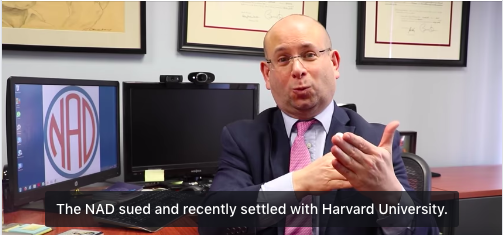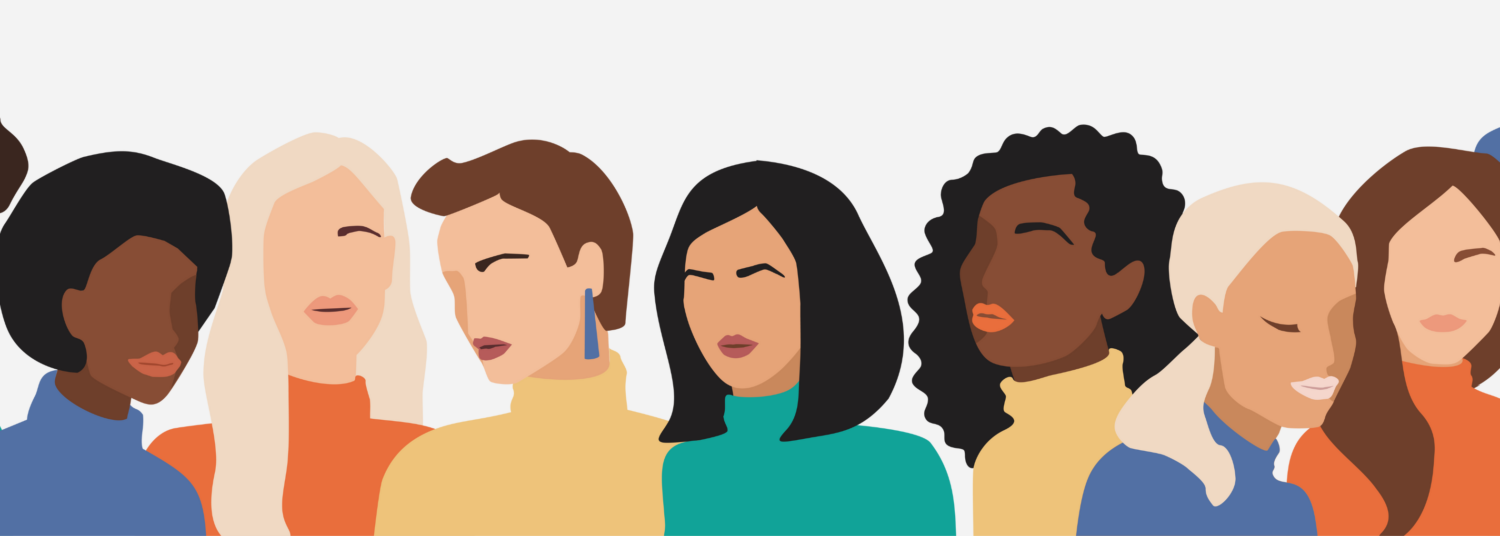Recently, Harvard University settled a class action lawsuit filed in 2015 by the National Association of the Deaf (NAD). The case revolved around the lack of captioning for Massive Open Online Courses (MOOCs). NAD also sued the Massachusetts Institute of Technology for similar reasons and that case is still being litigated.
The Department of Justice made statements that the universities were discriminating against deaf people by “failing to provide equal access in the form of captions.”
NAD’s CEO, Howard A. Rosenblum, provided a comprehensive breakdown of the case and its impact in his “Ask Howard Anything” series.
Key Takeaways
-
Websites are public spaces. An institution’s public accommodations obligation is not limited to brick and mortar spaces; online presence may be interpreted as a public space and would need to be accessible, such as providing captions for videos.
-
Quality captions. The case emphasizes the quality of captions needs to be considered and that auto-captions (such as YouTube’s auto-transcription feature) would not be considered equitable access under the ADA due to a high error rate.
-
The need for policies and procedures. The Harvard settlement includes a more proactive approach for all new content on Harvard’s websites in terms of captioning videos. While the ADA and Section 504 do not outline specific policies, procedures, or timelines for implementation of accommodations, a captioned media policy is important to address gaps in accessibility. Consider taking a similar proactive approach where all media is captioned regardless if a specific accommodation request has been made.
A Widespread Problem
This case is not an isolated incident. Many institutions have had issues with ensuring their online content is accessible to all audiences, and have responded in a variety of ways.
In a case from 2016, several complaints were filed with the Department of Justice (DOJ) against the University of California, Berkeley in regards to lack of accessibility features, including captioning and screen-reader features, for Massive Open Online Courses (MOOCs).
The DOJ wrote a Letter of Finding stating the university was in violation of the Americans with Disabilities Act and to resolve accessibility issues before the case would move forward to litigation.
“Based on our findings of accessibility barriers, we conclude that UC Berkeley is in violation of title II because significant portions of its online content are not provided in an accessible manner when necessary to ensure effective communication with people with hearing, vision or manual disabilities.”
– Department of Justice, Civil Rights Division
UC Berkeley’s response was to remove public access to the content and stated they would address accessibility on a case-by-case basis for students and campus community members in need of accommodations.
Providing Captioned Media at your Institution
NDC has helped numerous colleges and universities with captioned media inquiries over the past few years by sharing strategies to ensure media is accessible to deaf people through high quality captions. The following list is our most commonly shared resources on this topic:
-
Morton Ann Gernsbacher’s research “Video Captions Benefit Everyone”
-
WTCS Captioned Media Guide (Sample Policies)
If you are looking to create a campus wide captioned media policy, the NDC | help team is here to provide recommendations on how to get started. Contact us online or email us at [email protected].
This article was edited to clarify that MIT had not yet settled its lawsuit with NAD.









